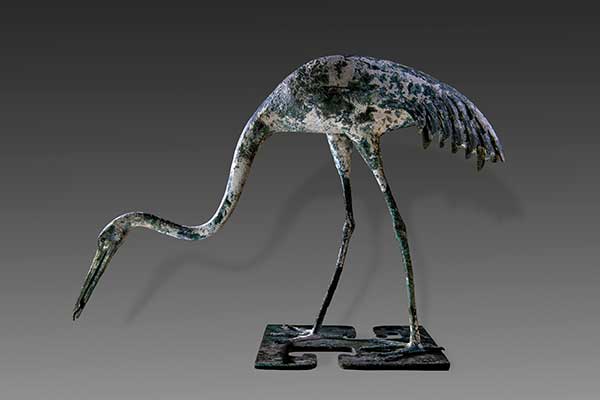

3. Bronze waterfowl pit: In 2000, a satellite pit located outside the outer wall of the mausoleum yielded 46 bronze waterfowl, including swans, red-crowned cranes and swan geese, as well as 15 pottery figurines.
The waterfowl are depicted in dynamic poses, some foraging, and some resting. Some cranes have an insect-like object in their mouths, which seems like the moment when their sharp beaks leave the water after catching prey. The whole scene resembles a water body, where waterfowl have fun and prey on insects on the river banks.
Some archaeologists infer that the pottery figurines embody musicians who play instruments and the waterfowl are domesticated to dance along with the music. As funeral objects accompanying the emperor after death, they may embody entertainment for the emperor and show the diversified cultural atmosphere of the Qin Dynasty.